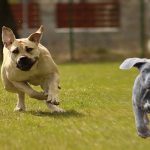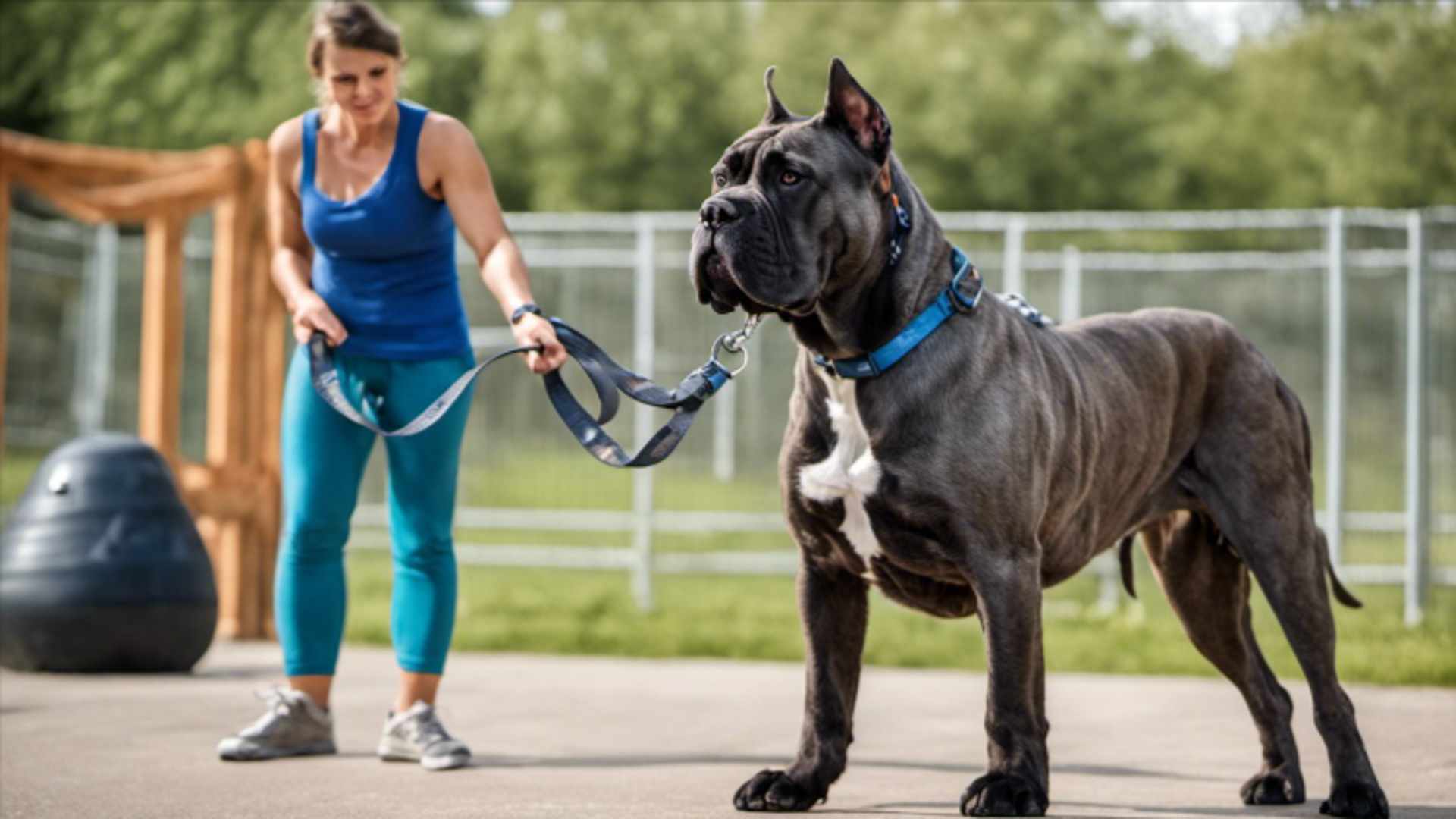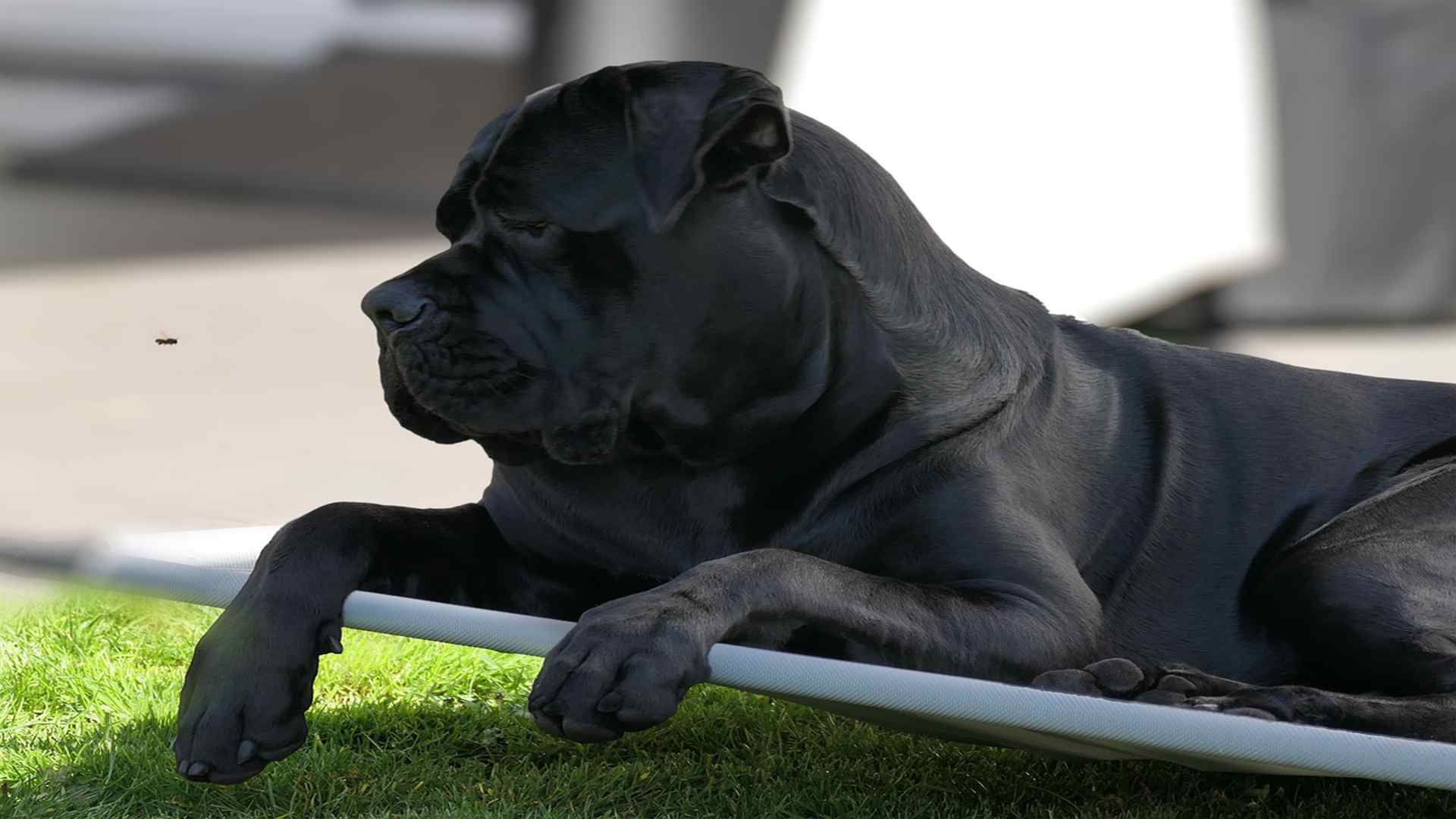Cane Corsos are an intelligent and versatile breed, making them a popular choice for families, protectors, and working dogs.
In order to answer the question of how smart Cane Corsos are, it is important to consider several factors, such as their trainability, adaptability, and problem-solving skills.
As a breed, Cane Corsos have been found to be highly trainable when provided with consistent and appropriate guidance, making them a suitable option for a variety of roles and jobs.
However, this level of intelligence requires commitment from their owners to ensure proper socialization and training throughout their life.
So, if you’re ready to learn more about this amazing breed, let’s begin!
Cane Corso intelligence
When it comes to understanding the intelligence of Cane Corsos, there are a few factors to consider. These large, powerful dogs are known for their protective instincts and loyalty to their owners.
But how do we objectively measure their intelligence, and where do they rank compared to other breeds?
Measuring intelligence
Assessing a dog’s intelligence is more complex than giving them an IQ test like humans. Instead, a combination of different measures is often used.
These can include the dog’s ability to learn new commands, solve problems, and respond appropriately to various situations.
A key method experts use to assess intelligence across breeds is Stanley Coren’s ‘The Intelligence of Dogs,’ which classifies dogs into six categories based on their working and obedience intelligence.
IQ test
Although there isn’t a direct equivalent to an IQ test for dogs, various tests can provide insights into their cognitive abilities.
One such test involves hiding a treat under a cup while the dog watches, then seeing if they can remember which cup the treat is hidden under after a short delay.
Comparing to other breeds
When comparing the intelligence of Cane Corsos to other breeds, it is essential to keep in mind that different breeds excel in different areas.
For example, German Shepherds are often regarded as highly intelligent dogs due to their exceptional working and obedience intelligence, making them an excellent choice for police and military work.
Cane Corsos, on the other hand, possess strong instincts for guarding and protection, making them highly valued for their ability to keep their owners and property safe.
While they may not rank as highly in terms of working and obedience intelligence, they possess other valuable intellectual traits, such as good situational awareness, adaptability, and resourcefulness.
Temperament
Cane Corsos are known for their unique temperament, which is a blend of courage, loyalty, and strong instincts.
These dogs are confident and assertive, often showing a natural ability to protect and defend their territory and the people they love.
With proper training and socialization, Cane Corsos can become well-behaved and affectionate family pets.
One of the most notable traits of the Cane Corso temperament is their remarkable loyalty. These dogs form strong bonds with their owners and family, making them excellent companions.
Their loyalty is complemented by innate protective instincts, which make them effective guard dogs.
Note: When it comes to territorial behavior, Cane Corsos can be quite assertive. They are naturally inclined to guard their homes and families, which can lead to territorial aggression if not properly managed.
This behavior can be controlled through consistent training and establishing clear boundaries.
While Cane Corsos are known for their courage and confidence, they can also exhibit some level of aggression if they perceive a threat.
Training and socialization
Cane Corsos are intelligent dogs known for their aptitude for learning and their ability to be well-trained when given proper guidance.
Training and socialization are essential aspects of raising a well-mannered and balanced Cane Corso.
Obedience and commands
These dogs are eager to learn and can grasp commands and tricks with relative ease when given consistent practice and rewards for their efforts.
Despite their independent nature, Cane Corsos are willing to follow their owner’s lead when given clear instructions and boundaries.
Training is essential as early as possible to instill good manners and build a strong foundation for obedience.
Some essential commands and exercises to teach your Cane Corso include:
- Heel
- Sit
- Stay
- Down
- Recall
- Leave it
Socializing and trust
Socialization is equally important for Cane Corsos to ensure that they grow up to be well-adjusted and confident dogs.
Exposing them to various environments, people, animals, and situations in a controlled manner during their first year can lead to a more relaxed and trustworthy adult dog.
Elements to consider for the socialization process include:
- Familiarizing them with family members and friends
- Introducing other dogs and pets in a controlled environment
- Exposing them to different sounds, scents, and situations gradually
Building trust between a Cane Corso and its owner is crucial for the success of training and socialization.
The Cane Corso will develop into a well-behaved and balanced companion with a patient and understanding approach, along with practice, rewards, and consistency.
Working abilities
Cane Corsos are versatile working dogs known for their remarkable guarding and herding abilities, as well as their skills in hunting and tracking.
Their robust strength and intelligence make them well-suited for these tasks, with the breed often exceeding expectations in agility and adaptability.
Guarding and herding
Cane Corsos have a strong guarding instinct, courtesy of their deep-rooted protective nature. They have historically been employed to guard property, livestock, and families against potential intruders.
Read also: How Do Cane Corsos Handle Weather Temperatures? (Complete Guide)
Their unwavering loyalty and courage, coupled with their excellent situational awareness, make them reliable and efficient guards.
Besides guarding, Cane Corsos are also adept at herding animals. With their innate ability to control and direct the movement of livestock, they can safely lead herds through various terrains.
Their attentiveness and responsiveness to commands and heightened agility contribute to their effectiveness as herding dogs.
Hunting and tracking
Originally bred for hunting in ancient Rome, Cane Corsos have retained their impressive hunting and tracking skills throughout the years.
They are adept at pursuing large prey, such as wild boar, with their powerful and agile build enabling them to keep pace with their quarry.
They use their keen sense of smell, stamina, and determination to track animals over long distances efficiently.
As a result of their hunting background, Cane Corsos exhibit traits that make them efficient working dogs in a variety of roles.
Their versatility has allowed the breed to adapt and excel in numerous areas, such as search and rescue, scent detection, and even competitive dog sports.
History and origin
The Cane Corso, also known as the Italian Mastiff, is a dog breed with a rich history that dates back to ancient Rome.
They were initially used as working dogs for various tasks, such as guarding property, herding livestock, and even participating in warfare.
Over time, the Cane Corso’s role evolved, and they became a prominent breed in rural Italian life.
Their adaptability, intelligence, and protective instincts made them invaluable to farmers and landowners who needed a reliable, sturdy dog to perform various tasks on their properties.
Despite their long and storied past, the Cane Corso experienced a decline in popularity after World War II, nearly leading to their extinction.
Thankfully, a group of dedicated breed enthusiasts came together in the 1970s to save and promote the breed.
Read also: What Were Cane Corsos Bred For? Complete Guide ([year])
Their efforts included establishing breeding programs and creating a breed standard, which ultimately led to the Cane Corso’s resurgence in popularity.
Today, the Cane Corso is recognized by many international kennel clubs, including the American Kennel Club (AKC) and the Federation Cynologique Internationale (FCI).
They are once again appreciated for their intelligence, strength, and versatility, making them a desired breed for both work and companionship.
Summary
Before we move on to the conclusion, we’ve summarized this article into a short list of key points for you to remember:
- Cane Corsos are versatile dogs that are popular for their intelligence and loyalty.
- The intelligence of Cane Corsos can be measured by their trainability, adaptability, and problem-solving skills.
- Socialization is equally important for Cane Corsos to ensure they become well-adjusted and confident dogs.
- The Cane Corso is once again appreciated for its intelligence, strength, and versatility, making it a desired breed for work and companionship.
Conclusion
Providing your Cane Corso with proper care and exercise will help maximize their physical and mental well-being.
You will foster a happy and well-adjusted companion by paying attention to their unique needs and ensuring they receive regular physical activity and mental stimulation.
Want to learn more about Cane Corso?
Ready to boost your knowledge to the next level? If so, check out the articles below:
- Cane Corso vs. Presa Canario: Ultimate Guide ([year])
- Cane Corso Bite Force vs. Lion: Ultimate Comparison ([year])
- Is Cane Corso Good with Cats? Feline Compatibility Explored





